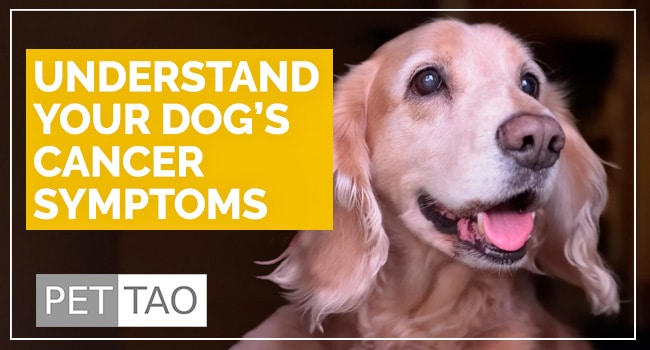Lumps and bumps on dogs often arise on dogs as they age.
If you see a lump or bump on your dog, what happens?
Do you immediately think “Does my dog have cancer?”
All skin lumps and bumps on dogs should be examined by your veterinarian.
There are several types of dog lumps and bumps. Unfortunately, some are cancerous. But, also, some are noncancerous.
Abscess
An abscess is a painful collection of pus, usually caused by a bite or a puncture wound.
Abscesses, by definition, are non-cancerous.
But, certain types of cancer can cause abscesses.
Any abscess should be treated by your veterinarian.
Basal Cell Tumor
A Basal cell tumor is a type of skin cancer.
Basal cell tumors are the most common type of cancer.
Luckily, Basal cell tumors rarely metastasize or cause death.
Ceruminous Gland Adenoma
A ceruminous gland adenoma is a benign tumor in the ear. Ceruminous gland adenomas are non-cancerous.
Epidermal Inclusion Cyst
An epidermal inclusion cyst is a benign cyst usually found on the skin.
Epidermal inclusion cysts are non-cancerous.
Hematoma
A hematoma is a localized collection of blood outside of the blood vessels.
The blood is usually liquid within the tissue.
Hematomas are non-cancerous.
Histiocytoma
A histiocytoma is a benign tumor.
Histiocytomas are caused by an overgrowth of histiocytes (immune cells).
Histiocytomas are non-cancerous.
Lipoma
A lipoma is a benign tumor composed of fatty cells found between the skin and muscle tissue.
And, lipomas are non-cancerous.
Mast Cell Tumor
Mast cell tumors are the most common cutaneous tumor found in dogs.
Unfortunately, mast cell tumors are cancerous.
Perianal Gland Tumor
A perianal gland tumor is a tumor found near the anus of a dog.
Perianal gland tumors can be either cancerous or noncancerous.
Sebaceous Adenoma
A sebaceous adenoma is a benign, slow-growing tumor of the sebaceous gland. Sebaceous adenomas are non-cancerous.
Skin Papilloma
A skin papilloma is a benign epithelial tumor. We often call papillomas “skin tags”.
Skin papillomas and skin tags are non-cancerous.
Soft-Tissue Sarcoma
Soft-tissue sarcomas are cancerous tumors of the soft tissues of the body.
Transmissible Venereal Tumors
Transmissible venereal tumors are sexually transmitted malignant tumors located on canine genitalia.
So, in other words, transmissible venereal tumors are cancerous.
Many photographs of dog tumors are available in books and online.
But, the only sure way to diagnose your dog’s lump or bump is to have your veterinarian send a biopsy or cytology to a lab for analysis.
Along with tumors, other signs of dog cancer are:
- Lethargy
- Unusual odors
- Weight loss
- Changes in appetite
- Respiratory problems
- Behavior changes
- Open sores
- Vomiting and diarrhea
- Pale gums
Dogs with tumors can often maintain an excellent quality of life.
Also, there are several options available to treat tumors and lumps on a dog’s body including surgery, herbal remedies, alternative treatments, and cryotherapy.
Powerful Tools for Overcoming Dog Cancer
You might not be aware, but many cancer-fighting tools are easy to get and use at home.
To realize your true cancer-fighting potential:
- Learn more about dog cancer.
- Ease your dog’s discomfort naturally. PET | TAO Comfort is a blend of Eastern herbs and Western supplements to soothe your dog’s inflammatory challenges to make him/her more comfortable.
- Boost your dog’s immune system with medicinal mushrooms. PET | TAO Complement Immune Mushroom Blend blends together the most powerful immune-boosting medicinal mushrooms on the market in a single product.
- Ease your dog’s stomach upset naturally. Many dogs with cancer suffer stomach upset as well. PET | TAO Harmonize GI naturally provides all the digestive enzymes and probiotics your dog needs for optimum gut health.
- Try PET | TAO Freeze Dried Beef Liver Treats. According to TCVM, the liver controls tendons and ligaments. As few as 5-6 treats per day can make a huge difference in your dog’s tendon and ligament health!
- Try a Blood-building TCVM Diet. According to TCVM theory, dogs suffering from cancer also often suffer from Blood deficiency. Blood deficiency may due to chemotherapy or the cancer itself. PET | TAO Zing dog food builds Blood.
- Learn more about TCVM Herbal Remedies. Chinese medicine offers many amazing natural solutions for dog cancer challenges and palliative care. Some good examples are:








